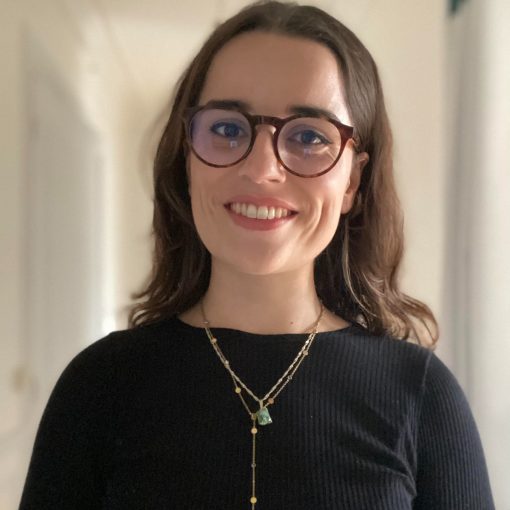The files we follow: International Drug Trafficking; …
Consider subscribing for free access to the full content!
On 14 December 2023, Attorney General Diana Salazar Méndez and her office launched the largest-ever judicial operation against officials and operators of political, police and judicial bodies allegedly linked to drug trafficking in Ecuador.
Judicial, political and police bodies corrupted right up to the highest levels of government.
Following the murder in prison of drug trafficker Leandro Norero on 3 October 2022, phones seized from his cell were placed in the custody of the police and the prosecutor’s office. Several months later, with the help of an external collaborator, the police succeeded in infiltrating part of the encrypted messaging system used on the phones, through which the drug traffickers exchanged information on their various activities.
These investigations revealed the involvement of high-ranking members of Ecuador’s political and judicial system, such as former deputy Ronny Aleaga, the mayor of Simón Bolívar, María Fernanda Vargas, and Assembly member Alexandra Arce. After Leandro Norero’s murder, a video also leaked showing the drug trafficker’s links with Claudia Garzón, a member of the prison pacification commission set up by Guillermo Lasso, the former president of Ecuador accused of corruption. The media quickly dubbed this judicial case the country’s biggest “corruption plot“.
Endemic violence
For many years, the country’s police forces have been infiltrated by members of organized crime. Members of the police force have reportedly sold weapons to gangs and acted as bodyguards for drug barons. In addition, members of the Ecuadorian judicial system are said to have helped drug traffickers by reducing their sentences or rendering them null and void. In 2021, the US ambassador to Ecuador, Michael Fitzpatrick, sounded the alarm on police corruption, warning that “narco-generals” were actively working to derail major criminal cases. In response, the United States cancelled the visas of 19 high-ranking police officers. Three of them were suspected of links to organized crime after an internal review, according to Ecuador’s former interior minister, Patricio Carrillo.
Since outgoing President Guillermo Lasso took office in 2021, violence in the country has risen by over 300%, by far the highest increase in Latin America, and placing the country in the top 10 most dangerous countries in the Andean region. The homicide rate rose from 6.9 per 100,000 inhabitants in 2019, to 46 per 100,000 inhabitants in 2023. Murders also rose by 800% between 2018 and 2023. The increase in these rates of violence is mainly due to gangs fighting for power and territory, against a backdrop of drug trafficking, extortion, human trafficking and arms dealing. Ecuador, with its 8 ports and strategic position in Latin America, has become the hub for transporting cocaine produced in Mexico and Peru to the USA and Europe. In 2023, 220 tonnes of cocaine were seized there. This market, worth several billion dollars a year, has enabled numerous Ecuadorian gangs, such as Los Choneros and Los Lobos, to develop a veritable arsenal of warfare superior to that possessed by the country’s police force, and to lay down the law in most of the country’s towns and prisons.
General impunity
Although the Ecuadorian police and judicial system are trying to combat these gangs, whose clashes kill hundreds of civilians every year, the police’s means of defence remain inadequate. For example, there is a shortage of prison places. With just over 30,000 places available for more than 31,000 inmates, these prisons in which they apply their laws, becoming over the years a lawless place and the focal points of criminal organizations. Moreover, when the Metastases affair was revealed to the general public at the end of 2023, this was followed by the “disappearance” from prison of the country’s two most dangerous cartel leaders, Adolfo Macias aka “Fito”, head of the country’s largest criminal organization Los Choneros, and now considered “public enemy number 1 in Ecuador”, and Fabricio Colón Pico, linked to the Los Lobos gang. Their leaks triggered waves of violence across the country, including mutinies and hostage-taking by guards in several of the country’s prisons, as well as a live hostage-taking on television.
In response, the newly elected president at the end of 2023, Daniel Noboa, declared a state of emergency in the country on 9 January. The army was thus authorized to participate for 60 days in maintaining order in the country’s streets and prisons, where a curfew was put in place between 11 p.m. and 5 a.m. (local time). However, the violence has not subsided, and gangs today seem ready to do anything to protect their territories and their “business”. The murder of anti-mafia prosecutor César Suárez on January 18 is a case in point. His murder in broad daylight and in the middle of the street sounded like a direct threat to the prosecutor’s office and to anyone who might oppose the gangs. César Suárez was investigating gangs and the hostage-taking that took place in the studios of a television station on 9 January. This assassination follows a long series, such as the murder of prosecutor Leonardo Palacios last June, killed by gunmen in the town of Duran, near Guayaquil. Diana Salazar also reported direct death threats from the Los Lobos cartel.
Vous devez souscrire à un abonnement EurasiaPeace pour avoir accès au contenu - Prendre votre abonnement





